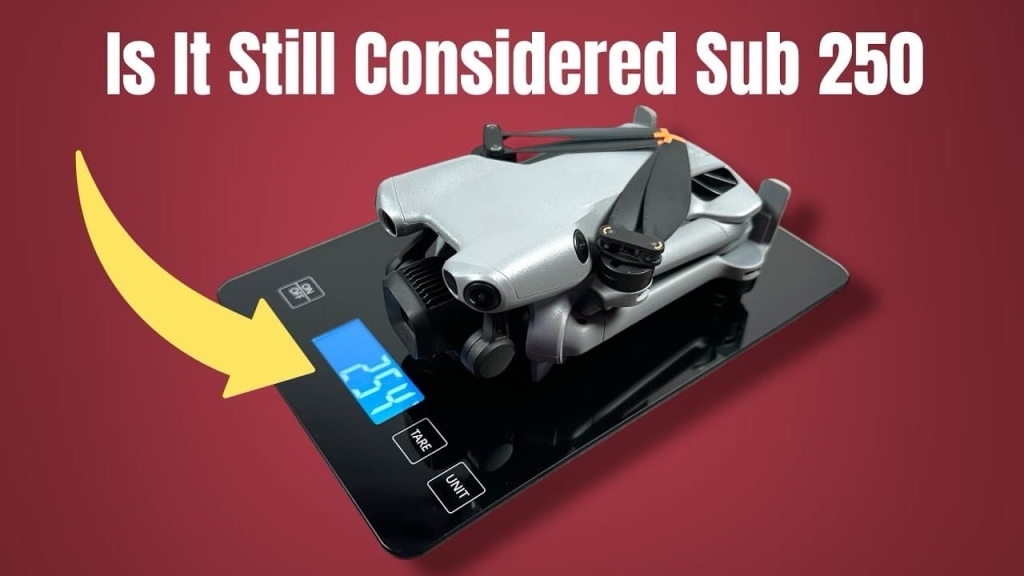DJI Mini 5 Pro Weight: Is It Still Considered Sub-250g?

Snag the 2025 Apple MacBook Air M4 13-inch for $799 (Save $200!) – Limited Amazon Deal!
Good day, folks. Sean here from Air Photography. In this quick video, we’re going to examine the weight of the DJI Mini 5 Pro. There has been a lot of discussion online about it weighing over 250 grams, which could be problematic for those who need a sub-250g drone due to regulations in their country.

This Mini 5 Pro was sent to me early for evaluation and testing. I’ve been flying it for about five or six weeks, but it was sent with the “plus” batteries. Consequently, I had no way to verify if it weighed under 250g with the regular flight battery. As soon as the regular batteries went on sale yesterday, I ordered one to put it to the test.
The DJI Mini 5 Pro Drone Weight Test
With the plus battery and a memory card installed, the Mini 5 Pro weighs 299g. In Canada, this means it needs to be registered, and you must have either a basic or advanced flight certificate to fly it.
For comparison, here is my Mini 4 Pro. It has the 249g battery and no memory card, and it weighs 251g. Technically, it’s also over the limit. Every Mini 4 will have a slightly different weight due to manufacturing tolerances, so one drone might be a gram heavier than another.
This battery just arrived, so I don’t know what the results will be yet. Let’s compare the weight difference between the two batteries. The Mini 5 Pro battery weighs 69g, while the Mini 4 light battery is 80g, making it slightly heavier. For curiosity, the plus battery weighs 116g.
Results and Implications
Now, let’s put the standard battery in the Mini 5 Pro. One thing you’ll notice right away is that it doesn’t label it as “249 grams” like the Mini 4 Pro’s battery does. Let’s fold it up and put it on the scale.
The moment of truth: 253g.
Technically, this is overweight in Canada and would have to be registered. This weight includes a memory card. Of course, adding accessories like ND filters or even a decal set will increase the weight further.
The big question is, can you fly this as a sub-250g drone? I’m not sure of the answer, and I don’t want to give bad advice. I plan to email Transport Canada to clarify the rules and see if there’s any leeway.
For me, I love sub-250g drones because they offer more freedom here in Canada. However, for the most part, I fly my mini drones with the larger battery, so they are already registered. In that case, the sub-250g classification isn’t as important because I still need a basic pilot certificate to fly it. But for some people in certain countries, that sub-250g mark is very important.
Before I go, I want to mention that I’m not sure how accurate the scale I used is. It’s a cheap one from Amazon, so it may not be exact.
Hopefully, you enjoyed this video and found it valuable.
